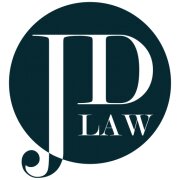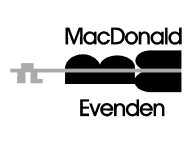Best Trusts Lawyers in London
Share your needs with us, get contacted by law firms.
Free. Takes 2 min.
List of the best lawyers in London, Canada
About Trusts Law in London, Canada:
Trusts in London, Canada are legal entities created to hold assets for the benefit of individuals or organizations. A trust is established when a settlor transfers assets to a trustee, who manages the assets according to the terms of the trust deed for the benefit of the beneficiaries. Trusts can be used for estate planning, charitable purposes, asset protection, and more.
Why You May Need a Lawyer:
There are several situations where you may require legal assistance with trusts in London, Canada. This includes creating a trust, interpreting trust documents, resolving disputes among beneficiaries or trustees, updating trust documents, and ensuring compliance with local laws and regulations.
Local Laws Overview:
In London, Canada, trusts are governed by provincial legislation, including the Trustee Act and the Succession Law Reform Act. These laws outline the duties and responsibilities of trustees, the rights of beneficiaries, rules for trust administration, and procedures for trust disputes.
Frequently Asked Questions:
1. What is a trust?
A trust is a legal entity created to hold assets for the benefit of individuals or organizations.
2. Who can create a trust in London, Canada?
Any individual who is of legal age and has the capacity to manage their affairs can create a trust in London, Canada.
3. What is the role of a trustee?
A trustee is responsible for managing the assets held in trust and administering the trust according to the terms of the trust deed.
4. How are trustees compensated?
Trustees may be entitled to compensation for their services, which is typically outlined in the trust deed or determined by provincial laws.
5. Can a trust be amended or revoked?
Depending on the terms of the trust deed, a trust may be amended or revoked by the settlor or beneficiaries under certain circumstances.
6. What happens if a trustee breaches their duties?
If a trustee breaches their duties, beneficiaries may take legal action to hold the trustee accountable and seek remedies for any losses incurred.
7. How are trust assets distributed to beneficiaries?
Trust assets are distributed to beneficiaries according to the terms outlined in the trust deed, which may specify conditions, timelines, and distribution methods.
8. Can a trust protect assets from creditors?
Depending on the type of trust established, assets held in a trust may be protected from creditors in certain circumstances.
9. What are the tax implications of a trust?
Trusts are subject to specific tax rules and regulations in Canada, including income tax, capital gains tax, and estate tax implications.
10. When should I seek legal advice for a trust matter?
You should consider seeking legal advice for trust matters when creating or amending a trust, resolving disputes among trustees or beneficiaries, interpreting trust documents, or ensuring compliance with local laws and regulations.
Additional Resources:
For more information on trusts in London, Canada, you may consider contacting the Ontario Bar Association, the Law Society of Ontario, or consulting with a local trusts and estates lawyer for guidance.
Next Steps:
If you require legal assistance with a trust matter in London, Canada, consider scheduling a consultation with a trusts and estates lawyer to discuss your specific needs and explore your options for resolving any trust-related issues.
Lawzana helps you find the best lawyers and law firms in London through a curated and pre-screened list of qualified legal professionals. Our platform offers rankings and detailed profiles of attorneys and law firms, allowing you to compare based on practice areas, including Trusts, experience, and client feedback.
Each profile includes a description of the firm's areas of practice, client reviews, team members and partners, year of establishment, spoken languages, office locations, contact information, social media presence, and any published articles or resources. Most firms on our platform speak English and are experienced in both local and international legal matters.
Get a quote from top-rated law firms in London, Canada — quickly, securely, and without unnecessary hassle.
Disclaimer:
The information provided on this page is for general informational purposes only and does not constitute legal advice. While we strive to ensure the accuracy and relevance of the content, legal information may change over time, and interpretations of the law can vary. You should always consult with a qualified legal professional for advice specific to your situation.
We disclaim all liability for actions taken or not taken based on the content of this page. If you believe any information is incorrect or outdated, please contact us, and we will review and update it where appropriate.










